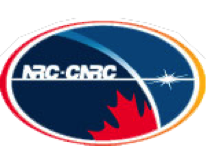National Research Council

The National Research Council (NRC) is the Government of Canada's premier organization for research and development. We have been active since 1916.
Our Mandate
NRC is a Government of Canada organization. Our mandate is set out in the National Research Council Act (NRC Act).
Under the NRC Act, NRC is responsible for:
- Undertaking, assisting or promoting scientific and industrial research in different fields of importance to Canada;
- Establishing, operating and maintaining a national science library;
- Publishing and selling or otherwise distributing such scientific and technical information as the Council deems necessary;
- Investigating standards and methods of measurement;
- Working on the standardization and certification of scientific and technical apparatus and instruments and materials used or usable by Canadian industry;
- Operating and administering any astronomical observatories established or maintained by the Government of Canada;
- Administering NRC's research and development activities, including grants and contributions used to support a number of international activities and providing vital scientific and technological services to the research and industrial communities.
- Medical Research Council (Medical Research Council)
- Biotechnology and Biological Sciences Research Council (BBSRC)
- Engineering and Physical Science Research Council (EPSRC)
- The Economic and Social Research Council (ESRC)
- The Arts and Humanities Research Council (AHRC)
- The Science and Technology Facilities Council (STFC)
- The Natural Environment Research Council (NERC)
- The Technology Strategy Board
- The Design Council
- Accelerate the commercial exploitation of creativity and knowledge, through innovation and research, to create wealth, grow the economy, build successful businesses and improve quality of life.
- Improve the skills of the population throughout their working lives to create a workforce capable of sustaining economic competitiveness, and enable individuals to thrive in the global economy.
- Build social and community cohesion through improved social justice, civic participation and economic opportunity by raising aspirations and broadening participation, progression and achievement in learning and skills.
- Pursue global excellence in research and knowledge, promote the benefits of science in society, and deliver science, technology, engineering and mathematics skills in line with employer demand.
- Strengthen the capacity, quality and reputation of the Further and Higher Education systems and institutions to support national economic and social needs.
- Encourage better use of science in Government, foster public service innovation, and support other Government objectives which depend on DIUS’ expertise and remit.
- distribute money to universities and colleges for higher education teaching, research and related activities
- fund programmes to support the development of higher education
- monitor the financial and managerial health of universities and colleges
- ensure the quality of teaching is assessed
- provide money to further education colleges for their higher education programmes
- upholds the Government's long term ambition that total R&D expenditure will constitute 3 per cent of GDP
- emphasises the need to focus on major global challenges relating to energy, climate, poverty and health
- incorporates perspectives relating to the northern areas
- sets clear targets for the role of the public sector in industry-oriented research
- signals a desire to increase investment in basic research
- suggests a new funding model for infrastructure
- sets clear targets for increased recruitment
- advocates greater focus on internationalisation
- states that resource use throughout the research sector will be evaluated
- support the best of the best scientific efforts in Europe across all fields of science, scholarship and engineering.
- promote wholly investigator-driven, or 'bottom-up' frontier research.
- encourage the work of the established and next generation of independent top research leaders in Europe.
- reward innovative proposals by placing emphasis on the quality of the idea rather than the research area.
- harness the diversity of European research talent and channel funds into the most promising or distinguished researchers.
- raise the status and visibility of European frontier research and the very best researchers of today and tomorrow.
